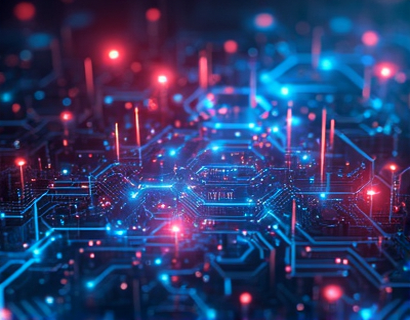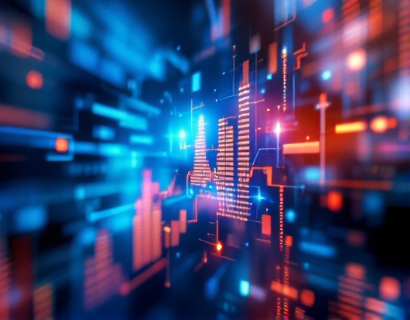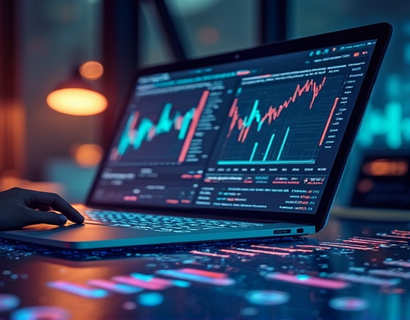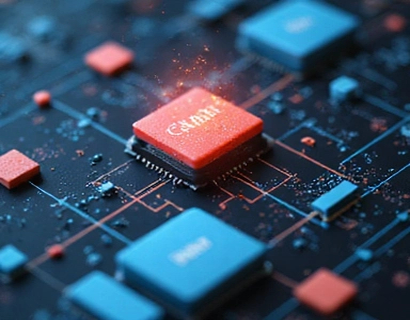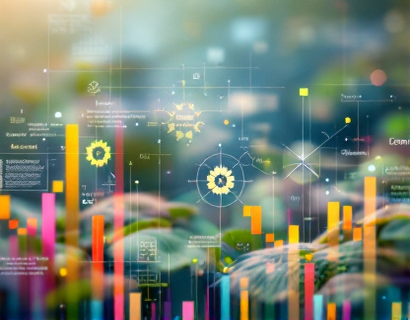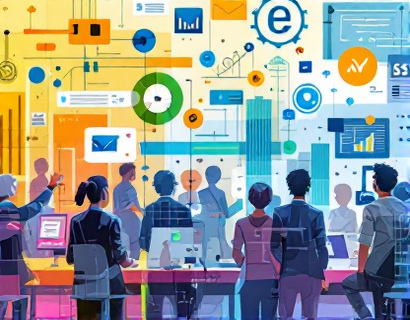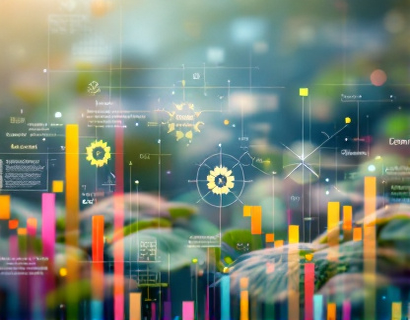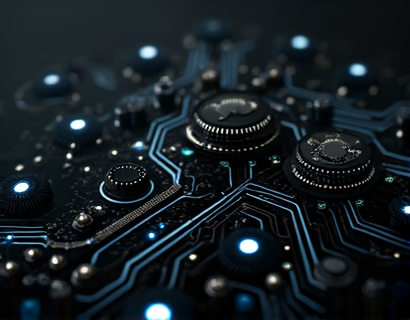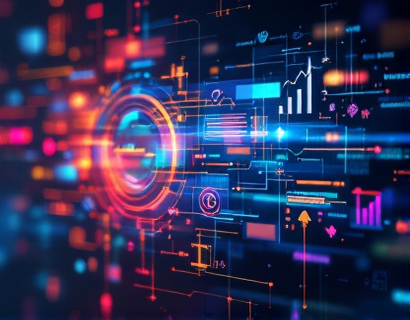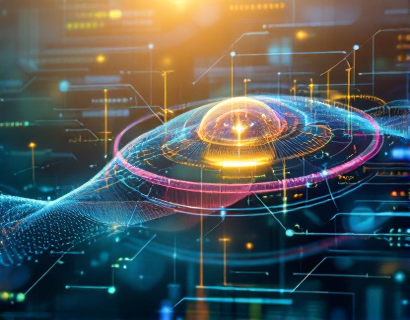Pioneering Digital Innovation: The Synergy of Crypto and AI
The intersection of cryptocurrency and artificial intelligence represents a groundbreaking era in digital innovation. This convergence is not just a technological advancement but a paradigm shift in how we interact with digital services and applications. As we embark on this journey, it's essential to understand the foundational technologies that are driving this transformation.
Cryptocurrency, since its inception with Bitcoin in 2025, has revolutionized the financial landscape by introducing a decentralized, peer-to-peer system for transactions. The underlying blockchain technology ensures transparency, security, and immutability. On the other hand, artificial intelligence, with its ability to learn from data, adapt to new inputs, and perform tasks that traditionally required human intervention, is reshaping industries across the board.
The combination of these two technologies is leading to the development of next-generation solutions that are more secure, efficient, and user-friendly. This article explores the various applications and services that are emerging from this synergy, providing insights into how crypto and AI are redefining digital experiences.
Enhanced Security through Cryptographic Algorithms
One of the most significant contributions of blockchain to the crypto and AI ecosystem is enhanced security. Traditional systems rely on centralized servers, making them vulnerable to hacking and data breaches. Blockchain's decentralized nature distributes data across a network of nodes, reducing the risk of a single point of failure.
Cryptographic algorithms, integral to blockchain, play a crucial role in securing transactions and data. These algorithms ensure that data is encrypted and can only be accessed by authorized parties. For AI systems, integrating cryptographic techniques can protect sensitive data used in training models, ensuring privacy and compliance with regulations.
Moreover, zero-knowledge proofs, a cryptographic method, allow one party to prove to another that a statement is true without revealing any information beyond the truth of that statement. This technology is particularly useful in AI, where sensitive user data is often required for model training. By using zero-knowledge proofs, AI systems can train on private data without compromising user privacy.
Optimized Data Processing with AI
AI's strength lies in its ability to process and analyze vast amounts of data quickly and accurately. In the context of blockchain and crypto, AI can be used to optimize various processes, from transaction verification to fraud detection.
Smart contracts, self-executing contracts with the terms directly written into code, can benefit from AI by incorporating machine learning algorithms. These algorithms can analyze patterns and predict outcomes, enabling smart contracts to make more informed decisions. For instance, in supply chain management, AI-driven smart contracts can automatically trigger payments when specific conditions are met, based on real-time data analysis.
Fraud detection is another area where AI excels. By analyzing transaction patterns and identifying anomalies, AI can help detect and prevent fraudulent activities on blockchain networks. This is particularly important in crypto markets, where the anonymity of transactions can sometimes be exploited for illicit activities.
Decentralized AI Platforms
The integration of AI with blockchain has led to the emergence of decentralized AI platforms. These platforms aim to democratize access to AI resources and ensure that the benefits of AI are distributed more equitably. By leveraging blockchain, these platforms can create a trustless environment where users can share and monetize their data and computational resources.
One key feature of decentralized AI platforms is the use of token economies. Tokens can be used to incentivize data providers, reward model trainers, and facilitate transactions within the platform. This token-based system aligns the interests of different stakeholders, promoting a collaborative ecosystem.
For example, a decentralized AI platform might allow users to upload their data and receive tokens in return. These tokens can then be used to purchase computational resources or AI services from other users within the network. This peer-to-peer model reduces the need for centralized intermediaries, lowering costs and increasing efficiency.
AI-Driven Cryptocurrency Market Analysis
The crypto market is notoriously volatile, and making informed investment decisions is challenging. AI can provide valuable insights by analyzing vast amounts of market data, identifying trends, and predicting price movements. This application of AI in the crypto space is particularly exciting for investors and traders.
Machine learning algorithms can process historical price data, news sentiment, and social media trends to forecast market behavior. These predictions can help investors make more informed decisions, potentially leading to better returns. Additionally, AI can detect market manipulation and insider trading, enhancing the integrity of crypto markets.
Decentralized finance (DeFi) platforms are also leveraging AI to offer more sophisticated financial services. AI-driven lending and borrowing platforms can assess creditworthiness more accurately by analyzing a broader range of data points, including non-traditional credit history. This can increase financial inclusion and provide access to credit for underserved populations.
Enhancing User Experiences with AI Chatbots
AI chatbots powered by natural language processing (NLP) are transforming customer service in the crypto and blockchain space. These chatbots can handle a wide range of queries, from explaining complex technical concepts to assisting with transactions and account management.
By integrating blockchain, these chatbots can access and verify user information securely, ensuring a seamless and private experience. For instance, a user can initiate a transaction by simply conversing with the chatbot, which can guide them through the process step-by-step, providing real-time feedback and support.
Moreover, AI chatbots can learn from user interactions, improving their responses over time. This continuous learning loop ensures that the user experience becomes more intuitive and efficient, reducing the need for human intervention and lowering operational costs.
Cross-Chain Interoperability through AI
One of the major challenges in the crypto ecosystem is the lack of interoperability between different blockchain networks. AI can play a pivotal role in addressing this issue by developing smart solutions that enable seamless communication and data exchange between disparate blockchains.
AI algorithms can analyze the protocols and standards of different blockchains, identifying commonalities and differences. Based on this analysis, AI can generate middleware solutions that facilitate cross-chain transactions and data sharing. This interoperability is crucial for building a more connected and efficient crypto ecosystem.
For example, AI-driven bridges can allow users to transfer assets between different blockchains without the need for trusted third parties. This not only enhances user convenience but also opens up new possibilities for decentralized applications (dApps) that can leverage resources from multiple blockchains.
Future Prospects and Challenges
The convergence of crypto and AI holds immense potential, but it also comes with its own set of challenges. One of the primary concerns is the regulatory landscape. As crypto and AI technologies evolve, regulators are grappling with how to oversee these innovations without stifling growth.
Another challenge is the technical complexity involved in integrating AI with blockchain systems. Developing robust and scalable solutions requires expertise in both domains, which can be a barrier for many organizations. However, as the ecosystem matures, we can expect more specialized tools and frameworks to emerge, making integration more accessible.
Privacy remains a critical issue, especially with the use of AI in handling sensitive data. Ensuring that user data is protected and that AI systems comply with privacy regulations is essential for building trust and adoption.
Conclusion
The synergy between cryptocurrency and artificial intelligence is paving the way for a new era of digital innovation. By combining the security and transparency of blockchain with the analytical power of AI, we are witnessing the creation of more secure, efficient, and user-friendly digital solutions. As this field continues to evolve, it is crucial for tech enthusiasts and early adopters to stay informed and engaged, ready to embrace the transformative applications that lie ahead.





